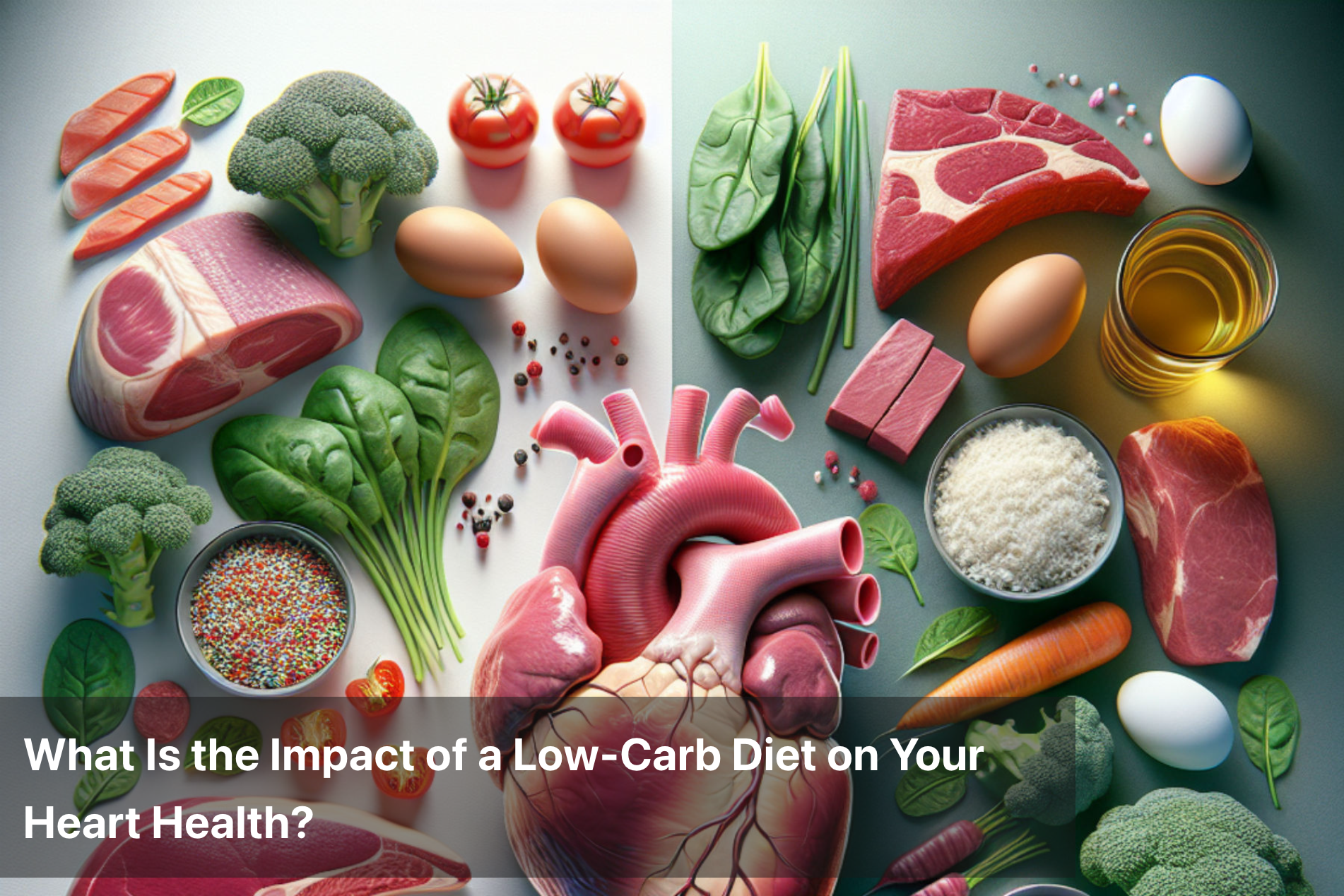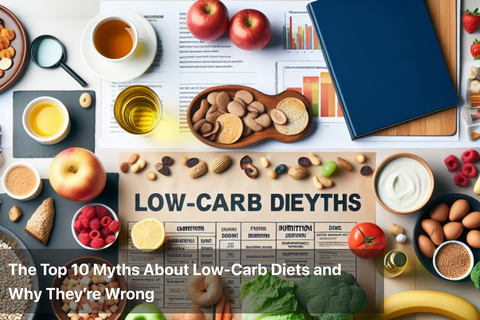
What Is the Impact of a Low-Carb Diet on Your Heart Health?
Heart disease remains one of the leading causes of death globally. As more people turn to diet-based solutions to improve cardiovascular health, the low-carb diet has emerged as a prominent strategy. Often associated with weight loss and blood sugar control, its impact on heart health has drawn both praise and scrutiny. Understanding how this eating pattern influences various aspects of cardiovascular function is essential for anyone considering it for long-term wellness.
A low-carb diet typically limits carbohydrate intake to below 100 grams per day and emphasizes protein, healthy fats, and low-carb vegetables. This shift in macronutrient balance can influence several markers linked to heart health, such as cholesterol levels, blood pressure, inflammation, and triglycerides.

Understanding the Relationship Between Diet and Heart Health
The heart relies on a steady supply of nutrients to maintain optimal function. Diets high in processed carbohydrates and sugars can lead to inflammation, insulin resistance, and fat accumulation—all major risk factors for cardiovascular disease. Conversely, reducing carbohydrate intake can lower insulin levels, promote fat loss, and reduce inflammation, all of which are beneficial to the heart.
Another important aspect of the diet-heart connection is the role of blood lipid profiles. Excess intake of refined carbs is known to raise triglyceride levels and lower HDL (good cholesterol), both of which are linked to increased cardiovascular risk. A low-carb diet can help rebalance these markers by shifting the body’s primary fuel source from glucose to fat, leading to improved lipid metabolism. This metabolic shift not only supports better energy regulation but also helps reduce the accumulation of arterial plaque, ultimately enhancing heart function and longevity.
Potential Benefits of a Low-Carb Diet for the Heart
-
Improved Triglyceride Levels: High carbohydrate intake, especially from sugar and refined grains, can elevate triglycerides. A low-carb diet significantly lowers these levels, reducing the risk of atherosclerosis.
-
Increased HDL (Good) Cholesterol: HDL helps remove excess cholesterol from arteries. Low-carb diets often boost HDL levels, offering protective cardiovascular effects.
-
Lower Blood Pressure: Reducing carbs helps with weight loss and insulin sensitivity, which in turn lowers blood pressure—a major contributor to heart disease.
-
Better Blood Sugar Control: Stable blood sugar reduces glycation and oxidative stress, both of which harm blood vessels and the heart.
-
Reduced Visceral Fat: A low-carb approach targets belly fat more effectively, which is closely linked with heart disease risk.
Concerns Around Low-Carb Diets and Heart Health
Despite numerous benefits, certain aspects of low-carb diets raise concerns, especially if the diet is poorly planned.
-
Increased LDL (Bad) Cholesterol: In some individuals, especially those following a very high-fat version of the diet, LDL cholesterol may rise. However, the size and density of LDL particles also matter—larger, fluffier particles are considered less harmful.
-
Saturated Fat Intake: Depending on food choices, a low-carb diet might include high levels of saturated fats from red meat, butter, and full-fat dairy. Excessive saturated fat may raise cholesterol and should be consumed mindfully.
-
Lack of Fiber: Removing whole grains and fruits without proper substitutes can lead to reduced fiber intake, impacting cholesterol levels and gut health.
Symptoms That May Indicate Poor Heart Health While on a Low-Carb Diet
If not carefully balanced, a low-carb diet could contribute to heart-related symptoms. Monitoring these signs can help ensure cardiovascular safety.
|
Symptom |
Possible Cause |
Recommended Action |
|---|---|---|
|
Frequent fatigue |
Electrolyte imbalance or inadequate carbs |
Reintroduce small amounts of complex carbs |
|
Chest discomfort or palpitations |
Possible impact on cholesterol or blood pressure |
Get cardiac evaluation and adjust fat sources |
|
Dizziness |
Low blood pressure or dehydration |
Increase fluids and monitor sodium intake |
|
Constipation |
Reduced fiber from limited carb intake |
Add fibrous vegetables, chia seeds, flaxseed |
|
Cold extremities |
Possible circulation issues |
Monitor lipid levels and overall heart health |
Causes Behind Cardiovascular Benefits of Low-Carb Diets
Several physiological changes explain why low-carb diets can positively affect heart health:
-
Lower Insulin Levels: High insulin contributes to fat storage and arterial plaque formation. Lower carb intake reduces insulin, benefiting vascular function.
-
Reduced Inflammation: Low-carb diets tend to reduce C-reactive protein (CRP), an inflammatory marker linked to heart disease.
-
Improved Weight Management: Excess weight is a major contributor to cardiovascular disease. A low-carb diet helps with effective and sustainable weight loss.
-
Better Lipid Particle Size: While total cholesterol might remain the same or increase slightly, the quality of cholesterol particles (larger, less dense LDL) often improves, reducing risk.
Precautions Before Starting a Low-Carb Diet for Heart Health
To safely adopt a low-carb diet, especially if there's a history of heart disease or related risk factors, certain precautions are necessary:
-
Get a baseline lipid profile to monitor cholesterol changes over time.
-
Choose healthy fat sources such as avocados, nuts, seeds, olive oil, and fatty fish instead of processed meats and excessive butter.
-
Monitor blood pressure and heart rate regularly to detect any unusual fluctuations.
-
Incorporate fiber-rich low-carb foods like leafy greens, broccoli, chia seeds, and flaxseed to support gut and heart health.
-
Work with a healthcare provider or nutritionist, particularly for those already on heart medications or with existing cardiovascular conditions.
Heart-Friendly Foods to Include on a Low-Carb Diet
Making the right food choices is key to ensuring your low-carb diet supports heart health.
|
Food Group |
Heart-Healthy Low-Carb Options |
|---|---|
|
Protein |
Salmon, sardines, chicken breast, tofu, eggs |
|
Vegetables |
Spinach, kale, broccoli, zucchini, cauliflower |
|
Fats |
Avocados, olive oil, walnuts, almonds, flaxseeds |
|
Dairy |
Greek yogurt (unsweetened), paneer, hard cheese in moderation |
|
Condiments/Extras |
Garlic, turmeric, cinnamon, fresh herbs, lemon juice |
Tips to Make a Low-Carb Diet Cardiovascular-Friendly
-
Prioritize unsaturated fats over saturated and trans fats.
-
Avoid ultra-processed low-carb snacks that may be high in sodium or unhealthy oils.
-
Stay physically active to further improve blood pressure and circulation.
-
Hydrate well and balance electrolytes to support vascular function.
-
Don’t go too low in carbs unnecessarily; a moderate reduction often suffices for heart health without triggering adverse effects.

Psychological and Lifestyle Factors That Influence Heart Health on Low-Carb Diets
Stress, lack of sleep, and a sedentary lifestyle can counteract the cardiovascular benefits of a healthy diet. A holistic approach that includes stress management, regular movement, and quality sleep is essential. Adopting a low-carb diet isn’t just about food—it’s a lifestyle change that must be sustainable and enjoyable to be effective long-term.
Summary
A well-planned low-carb diet can offer several heart health benefits, including reduced triglycerides, increased HDL, better blood pressure control, and improved body weight management. However, it’s important to personalize the approach and avoid common pitfalls such as excessive saturated fat or lack of fiber. With the right precautions and food choices, a low-carb lifestyle can support cardiovascular wellness for the long term.
This Blog post is an initiative by Lo! Foods, to provide accurate and Nutritionist / Doctor approved information related to Health. Lo! Foods is India's leading brand for Everyday Functional Foods. Foods designed for specific Health conditions or Needs. Lo! Foods also runs India's largest range of Low Carb Healthy Cloud Kitchens, under the brand names of Lo!, ProteinChef, ATH (All Things Healthy) and DiabeSmart.













Leave a comment
Your email address will not be published.